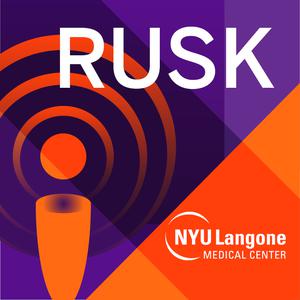
RUSK Insights on Rehabilitation Medicine
Dr. Thomas Elwood
- 30 minutes 22 secondsDr. Sara Cuccurullo and Dr. Talya Flemming: Investigating and Analyzing the Effect of a Comprehensive Stroke Recovery Program, Part 1
The introduction is done by Dr. Steven Flanagan, Chairperson of the Department of Rehabilitation at NYU Langone Health.
Sara Cuccurullo MD is Professor and Chairman, Residency Program Director in the Department of Physical Medicine and Rehabilitation at Hackensack Meridian School of Medicine, Rutgers- Robert Wood Johnson Medical School; Medical Director, VP at JFK Johnson Rehabilitation Institute; and Physician in Chief of HMH Rehabilitation Care Transformation Services
Talya Flemming MD is Medical Director: Stroke Recovery Program, Post-COVID Rehabilitation Program, Aftercare Program ABMS, Brain Injury Medicine Certified JFK Johnson Rehabilitation Institute, Department of Physical Medicine and Rehabilitation Clinical Associate Professor, Rutgers Robert Wood Johnson Medical School Core Associate Professor, Hackensack Meridian School of Medicine.
Part 1
Dr. Cuccurullo began by discussing their stroke recovery program, specifically investigating and analyzing the effects of a comprehensive initiative on all-cause mortality, function, and readmissions. She listed the learning objectives for today’s grand round presentation. Strokes are the number one admission in their inpatient rehab facility. Twenty-two percent of their patients comply with going to the facility. Their patients have a finite resource for Medicare once they leave inpatient or the acute care setting. Payment caps compromise the ability to have outpatient therapies that prevent them from having a full recovery. Dr. Flemming pointed out that there is an overlap with patients who have neurologic disease after stroke as well as patients who have cardiac disease. So, they designed their program to combine both elements of neurorehabilitation and a modified cardiac rehabilitation program, which starts with an outpatient visit with a stroke physiatrist. Common challenges that need to be addressed are patients with: weakness on their one side versus the other, cognitive or attention deficits, poor safety awareness, and post-stroke fatigue. They decided that it would be important to collect medical and functional outcome data to see if the program could affect hospital readmissions, the recurrence of stroke, and overall mortality.
15 January 2025, 11:41 am - 15 minutes 57 secondsKate Parkin, Mary Reilly, Angela Stolfi, and Christina Tafurt: Clinical Practice of Occupational Therapy, Physical Therapy, and Speech-Language Pathology, Part 4
Catherine Parkin serves as Clinical Assistant Professor, Department of Rehabilitation Medicine at NYU Grossman School of Medicine, She co-authored the book, Medical aspects of disability for the rehabilitation professionals in 2017 by the Springer Publishing Company.
Mary Regina Reilly has served as the Clinical Director of Speech Language Pathology at Rusk Rehabilitation, NYU Langue Health for the last ten years. Her Master’s Degree is from Columbia University and she did her fellowship at Montefiore Medical Center in the Bronx, New York. Clinical concentration has focused on pediatric dysphagia with medically complex infants with additional efforts in developing specialty programs for adults with acquired neurogenic disorders. She was instrumental in assisting in the development of the Masters of Science Program in Communication Sciences at Yeshiva University and has served as an adjunct professor at both Mercy College and NYU Steinhardt.
Dr. Angela Stolfi is the Director of Physical Therapy, Director of Therapy Services at Rusk Ambulatory Satellite Locations, Site Coordinator of PT Clinical Education, and Director of PT Residency and Fellowship Programs at Rusk Rehabilitation, NYU Langone Health. Dr. Stolfi holds a faculty appointment in the Department of Rehabilitation at NYU School of Medicine and regularly lectures in the physical therapy programs at both NYU and the University of Scranton. The focus of much of her current and recent research relates to mentoring and education of student physical therapists. She is also an Associate Editor of the Journal of Clinical Education in Physical Therapy (JCEPT).
Maria Cristina Tafurt is the Site Director at the Rusk Institute NYU Langone Medical Center, Hospital for Joint Diseases. She has been a licensed occupational therapist for over 30 years receiving her Bachelor’s degree from the University of Rosario in Bogata Colombia, and her Advance Master’s degree from NYU University. Her clinical experience has varied with an emphasis on brain injury rehabilitation, pain management, hand therapy, and orthopedics. She holds a faculty appointment in the Department of Rehabilitation Medicine as a Clinical Instructor and has authored or co-authored sixteen articles, abstracts and international presentations in her field.
The discussion covered the following topics: influence of artificial intelligence, and research endeavors pertaining to occupational therapy, physical therapy, and speech-language pathology.
30 December 2024, 5:36 pm - 23 minutes 38 secondsKate Parkin, Mary Reilly, Angela Stolfi, and Christina Tafurt: Clinical Practice of Occupational Therapy, Physical Therapy, and Speech-Language Pathology, Part 3
Catherine Parkin serves as Clinical Assistant Professor, Department of Rehabilitation Medicine at NYU Grossman School of Medicine, She co-authored the book, Medical aspects of disability for the rehabilitation professionals in 2017 by the Springer Publishing Company.
Mary Regina Reilly has served as the Clinical Director of Speech Language Pathology at Rusk Rehabilitation, NYU Langue Health for the last ten years. Her Master’s Degree is from Columbia University and she did her fellowship at Montefiore Medical Center in the Bronx, New York. Clinical concentration has focused on pediatric dysphagia with medically complex infants with additional efforts in developing specialty programs for adults with acquired neurogenic disorders. She was instrumental in assisting in the development of the Masters of Science Program in Communication Sciences at Yeshiva University and has served as an adjunct professor at both Mercy College and NYU Steinhardt.
Dr. Angela Stolfi is the Director of Physical Therapy, Director of Therapy Services at Rusk Ambulatory Satellite Locations, Site Coordinator of PT Clinical Education, and Director of PT Residency and Fellowship Programs at Rusk Rehabilitation, NYU Langone Health. Dr. Stolfi holds a faculty appointment in the Department of Rehabilitation at NYU School of Medicine and regularly lectures in the physical therapy programs at both NYU and the University of Scranton. The focus of much of her current and recent research relates to mentoring and education of student physical therapists. She is also an Associate Editor of the Journal of Clinical Education in Physical Therapy (JCEPT).
Maria Cristina Tafurt is the Site Director at the Rusk Institute NYU Langone Medical Center, Hospital for Joint Diseases. She has been a licensed occupational therapist for over 30 years receiving her Bachelor’s degree from the University of Rosario in Bogata Colombia, and her Advance Master’s degree from NYU University. Her clinical experience has varied with an emphasis on brain injury rehabilitation, pain management, hand therapy, and orthopedics. She holds a faculty appointment in the Department of Rehabilitation Medicine as a Clinical Instructor and has authored or co-authored sixteen articles, abstracts and international presentations in her field.
The discussion covered the following topics: involvement of informal caregivers in treatment, staying on top of new developments, use of assistive technology, provision of care via telehealth, and impact of Long Covid on patient care.
18 December 2024, 11:59 am - 21 minutes 42 secondsKate Parkin, Mary Reilly, Angela Stolfi, and Christina Tafurt: Clinical Practice of Occupational Therapy, Physical Therapy, and Speech-Language Pathology, Part 2
Catherine Parkin serves as Clinical Assistant Professor, Department of Rehabilitation Medicine at NYU Grossman School of Medicine, She co-authored the book, Medical aspects of disability for the rehabilitation professionals in 2017 by the Springer Publishing Company.
Mary Regina Reilly has served as the Clinical Director of Speech Language Pathology at Rusk Rehabilitation, NYU Langue Health for the last ten years. Her Master’s Degree is from Columbia University and she did her fellowship at Montefiore Medical Center in the Bronx, New York. Clinical concentration has focused on pediatric dysphagia with medically complex infants with additional efforts in developing specialty programs for adults with acquired neurogenic disorders. She was instrumental in assisting in the development of the Masters of Science Program in Communication Sciences at Yeshiva University and has served as an adjunct professor at both Mercy College and NYU Steinhardt.
Dr. Angela Stolfi is the Director of Physical Therapy, Director of Therapy Services at Rusk Ambulatory Satellite Locations, Site Coordinator of PT Clinical Education, and Director of PT Residency and Fellowship Programs at Rusk Rehabilitation, NYU Langone Health. Dr. Stolfi holds a faculty appointment in the Department of Rehabilitation at NYU School of Medicine and regularly lectures in the physical therapy programs at both NYU and the University of Scranton. The focus of much of her current and recent research relates to mentoring and education of student physical therapists. She is also an Associate Editor of the Journal of Clinical Education in Physical Therapy (JCEPT).
Maria Cristina Tafurt is the Site Director at the Rusk Institute NYU Langone Medical Center, Hospital for Joint Diseases. She has been a licensed occupational therapist for over 30 years receiving her Bachelor’s degree from the University of Rosario in Bogata Colombia, and her Advance Master’s degree from NYU University. Her clinical experience has varied with an emphasis on brain injury rehabilitation, pain management, hand therapy, and orthopedics. She holds a faculty appointment in the Department of Rehabilitation Medicine as a Clinical Instructor and has authored or co-authored sixteen articles, abstracts and international presentations in her field.
The discussion in Part Two covered the following topics: types of patients treated, impact of health care disparities, and patient cooperation in health care interventions by providers.
4 December 2024, 3:55 pm - 30 minutes 3 secondsKate Parkin, Mary Reilly, Angela Stolfi, and Christina Tafurt: Clinical Practice of Occupational Therapy, Physical Therapy, and Speech-Language Pathology, Part 1
Catherine Parkin serves as Clinical Assistant Professor, Department of Rehabilitation Medicine at NYU Grossman School of Medicine, She co-authored the book, Medical aspects of disability for the rehabilitation professionals in 2017 by the Springer Publishing Company.
Mary Regina Reilly has served as the Clinical Director of Speech Language Pathology at Rusk Rehabilitation, NYU Langue Health for the last ten years. Her Master’s Degree is from Columbia University and she did her fellowship at Montefiore Medical Center in the Bronx, New York. Clinical concentration has focused on pediatric dysphagia with medically complex infants with additional efforts in developing specialty programs for adults with acquired neurogenic disorders. She was instrumental in assisting in the development of the Masters of Science Program in Communication Sciences at Yeshiva University and has served as an adjunct professor at both Mercy College and NYU Steinhardt.
Dr. Angela Stolfi is the Director of Physical Therapy, Director of Therapy Services at Rusk Ambulatory Satellite Locations, Site Coordinator of PT Clinical Education, and Director of PT Residency and Fellowship Programs at Rusk Rehabilitation, NYU Langone Health. Dr. Stolfi holds a faculty appointment in the Department of Rehabilitation at NYU School of Medicine and regularly lectures in the physical therapy programs at both NYU and the University of Scranton. The focus of much of her current and recent research relates to mentoring and education of student physical therapists. She is also an Associate Editor of the Journal of Clinical Education in Physical Therapy (JCEPT).
Maria Cristina Tafurt is the Site Director at the Rusk Institute NYU Langone Medical Center, Hospital for Joint Diseases. She has been a licensed occupational therapist for over 30 years receiving her Bachelor’s degree from the University of Rosario in Bogata Colombia, and her Advance Master’s degree from NYU University. Her clinical experience has varied with an emphasis on brain injury rehabilitation, pain management, hand therapy, and orthopedics. She holds a faculty appointment in the Department of Rehabilitation Medicine as a Clinical Instructor and has authored or co-authored sixteen articles, abstracts and international presentations in her field.
The discussion covered the following topics in Part One: a description of each of the three professions, educational requirements to become practitioners, and recruitment and retention of clinicians.
20 November 2024, 12:00 pm - 16 minutes 18 secondsDr. Heidi Fusco, Alaina B. Hammond, Dr. Jessica Rivetz: Traumatic Brain Injury, Part 3
Dr. Heidi Fusco is an assistant professor of Rehabilitation Medicine at NYU LANGONE Health and the Rusk Rehabilitation hospital. She is the Assistant Director of the Traumatic Brain Injury Program at Rusk and the Medical Director of the Brain Injury Unit at Queens Nassau Nursing and Rehabilitation. She completed a fellowship in Brain injury Rehab in 2013 at the Rusk Institute and is board certified in Brain Injury medicine and Physical Medicine and Rehabilitation.
Alaina B. Hammond is a board certified rehabilitation psychologist and currently serves as Clinical Assistant Professor and Staff Psychologist in the NYU Langone Rusk Adult Inpatient - Brain Injury Rehabilitation Program. She provides psychological and neuropsychological intervention and assessment to patients and families with acquired brain injury, stroke, spinal cord injury and other illness/injuries. In addition, she supervises psychology interns and enjoys researching family/caregiver adjustment to medical illness.
Dr. Jessica Rivetz is the current Brain Injury Medicine Fellow at NYU Rusk Rehabilitation. She recently completed her residency in physical medicine and rehabilitation at NYU Rusk. She received her MD degree at Albany Medical College, and also has a Master's of Science in health care management. Extracurricular activities include serving as co-chairperson of the NYU GME House Staff Patient Safety Council. Within brain injury medicine, she has a special interest managing patients with moderate to severe traumatic brain injury and helping them and their caregivers navigate life after brain injury and achieve their functional and quality of life goals.
Part 3
The discussion covered the following topics: phases of treatment when mindfulness and self-compassion can be introduced to achieve optimal effectiveness; the role of telehealth; extent to which a group-based approach is used; availability of commercialized digital resources on the Internet, such as apps; use of wearable devices by patients; and the impact of artificial intelligence on patient care.
6 November 2024, 11:00 am - 16 minutes 47 secondsDr. Heidi Fusco, Alaina B. Hammond, Dr. Jessica Rivetz: Traumatic Brain Injury, Part 2
Dr. Heidi Fusco is an assistant professor of Rehabilitation Medicine at NYU LANGONE Health and the Rusk Rehabilitation hospital. She is the Assistant Director of the Traumatic Brain Injury Program at Rusk and the Medical Director of the Brain Injury Unit at Queens Nassau Nursing and Rehabilitation. She completed a fellowship in Brain injury Rehab in 2013 at the Rusk Institute and is board certified in Brain Injury medicine and Physical Medicine and Rehabilitation.
Alaina B. Hammond is a board certified rehabilitation psychologist and currently serves as Clinical Assistant Professor and Staff Psychologist in the NYU Langone Rusk Adult Inpatient - Brain Injury Rehabilitation Program. She provides psychological and neuropsychological intervention and assessment to patients and families with acquired brain injury, stroke, spinal cord injury and other illness/injuries. In addition, she supervises psychology interns and enjoys researching family/caregiver adjustment to medical illness.
Dr. Jessica Rivetz is the current Brain Injury Medicine Fellow at NYU Rusk Rehabilitation. She recently completed her residency in physical medicine and rehabilitation at NYU Rusk. She received her MD degree at Albany Medical College, and also has a Master's of Science in health care management. Extracurricular activities include serving as co-chairperson of the NYU GME House Staff Patient Safety Council. Within brain injury medicine, she has a special interest managing patients with moderate to severe traumatic brain injury and helping them and their caregivers navigate life after brain injury and achieve their functional and quality of life goals.
Part 2
The discussion covered the following topics: persistence of sleep disorders and the role of physical exercise in treating them; definition of mindfulness; kinds of interventions included under the heading of mindfulness; examples of how it aims to address the severity of various TBI-related health problems; duration of mindfulness treatment; and self-compassion as another type of non-pharmacological intervention.
23 October 2024, 10:07 am - 21 minutes 52 secondsDr. Heidi Fusco, Alaina B. Hammond, Dr. Jessica Rivetz: Traumatic Brain Injury, Part 1
Dr. Heidi Fusco is an assistant professor of Rehabilitation Medicine at NYU LANGONE Health and the Rusk Rehabilitation hospital. She is the Assistant Director of the Traumatic Brain Injury Program at Rusk and the Medical Director of the Brain Injury Unit at Queens Nassau Nursing and Rehabilitation. She completed a fellowship in Brain injury Rehab in 2013 at the Rusk Institute and is board certified in Brain Injury medicine and Physical Medicine and Rehabilitation.
Alaina B. Hammond is a board certified rehabilitation psychologist and currently serves as Clinical Assistant Professor and Staff Psychologist in the NYU Langone Rusk Adult Inpatient - Brain Injury Rehabilitation Program. She provides psychological and neuropsychological intervention and assessment to patients and families with acquired brain injury, stroke, spinal cord injury and other illness/injuries. In addition, she supervises psychology interns and enjoys researching family/caregiver adjustment to medical illness.
Dr. Jessica Rivetz is the current Brain Injury Medicine Fellow at NYU Rusk Rehabilitation. She recently completed her residency in physical medicine and rehabilitation at NYU Rusk. She received her MD degree at Albany Medical College, and also has a Master's of Science in health care management. Extracurricular activities include serving as co-chairperson of the NYU GME House Staff Patient Safety Council. Within brain injury medicine, she has a special interest managing patients with moderate to severe traumatic brain injury and helping them and their caregivers navigate life after brain injury and achieve their functional and quality of life goals.
Part 1
The discussion covered the following topics: concussions and TBIs; pediatric care; use of biomarkers; common causes of a TBI; common symptoms and their length of duration; involvement of informal caregivers; and occurrence of sleep disorders.
9 October 2024, 11:00 am - 28 minutes 29 secondsDr. Steven DeKosky: CTE History, Questions and Future Directions, Part 2
Dr. Steven DeKosky is professor of Alzheimer’s research at the University of Florida College of Medicine and Deputy Director of the McKnight Brain Institute at that institution. He also is a professor of neurology and neuroscience there. Previously, he served as vice president and dean of the University of Virginia School of Medicine and was chairperson of the department of neurology at the University of Pittsburgh.
Part 2
For the short-term, with mild to moderate traumatic injury you can have altered synaptic structure and function. For the longer term, chronic inflammation and chronic oxidative stress can lead to subsequent degeneration and also some chronic microglial activation, which may turn on mechanisms that you do not necessarily want, including cleaning up partially injured neurons that may recover. Especially in patients who get the disease in an older age, there is other pathology in the CTE. There are nerve fibrillary tangle and Lewy body. Amyloid beta can be elevated in both white matter and grey matter and might add to the cascade that is thought amyloid leads to, which leads to degeneration especially Alzheimer’s disease, but cannot prove it. Participants in contact sports all are at significant risk. APOE 4 increases the risk of Alzheimer’s disease and the risk of tau deposition. Currently, when patients arrive for rehabilitation, they are going to have things a lot better described than was the case previously. We can look at disruption of structures, see hemorrhage and inflammation. We know that CTE is not a new disease, but we do see the pathology in other contact sports and we do not view it in autopsy series unless the individual had a history or repetitive head injury.
A Question & Answer period followed.
25 September 2024, 11:00 am - 35 minutes 54 secondsDr. Steven DeKosky: CTE History, Questions and Future Directions, Part 1
Dr. Steven DeKosky is professor of Alzheimer’s research at the University of Florida College of Medicine and Deputy Director of the McKnight Brain Institute at that institution. He also is a professor of neurology and neuroscience there. Previously, he served as vice president and dean of the University of Virginia School of Medicine and was chairperson of the department of neurology at the University of Pittsburgh.
Part 1
Dr. DeKosky described how CTE has a fascinating history, There still are questions about it. Some questions are old while some are new, but they all are interesting with respect to injury to the brain and how you try to repair it. Future directions also will be covered because the data arrive quickly. Mild traumatic brain injury usually means at least being knocked unconscious. It is not clear whether there is short-term pathology that lasts. Recovery usually is good. It is not clear exactly how much of an increased risk of Alzheimer’s disease there is with a single severe TBI while more is being learned about the long-term effects. Only recently has CTE been defined clearly. Boxing is where CTE came from initially. He indicated that football helmets first were used at the U.S. Naval Academy in 1894 because one player needed protection against experiencing another head injury. He mentioned that the NCAA owes its origins to efforts to reduce brutal injuries sustained by football players. President Theodore Roosevelt led governmental efforts to prevent such injuries. Several examples were provided of developments that occurred over the decades to obtain a greater understanding of the prevention and treatment of brain damage. Apart from head injuries in sports, an uptick in interest in such uncommon disorders resulted from modern day wars in the middle east involving blast injuries from IEDs and the discovery that playing football and other sports led to many injuries viewed as being more common.
12 September 2024, 2:32 pm - 38 minutes 2 secondsDr. Darryl Kaelin: Traumatic Brain Injury And Its Association With Neurodegenerative Disorders, Part 2
The introduction is done by Dr. Steven Flanagan, Chairperson of the Department of Rehabilitation at NYU Langone Health. His remarks ended at the 2 minute: 24 second mark.
Dr. Darryl Kaelin is the Endowed Chair of Stroke and Brain Injury Rehabilitation at the University of Louisville. In this Grand Rounds session, he speaks about Traumatic Brain Injury and its Association with Neurodegenerative Disorders.
Part 2
Repetitive mild brain injuries also can result in the same kinds of findings. So, it is not just moderate to severe, but repetitive mild injuries that increase the risk. Although there may not be a direct causal relationship, certainly having a brain injury, multiple mild brain injuries or a moderate to severe brain injury increases the risk of developing neurodegenerative processes like Alzheimer’s and Parkinson’s. He tells his patients that the likelihood of developing a neurodegenerative process may be there, but in each individual it can be different. We don’t know specifically what it might mean for you. On average the risk may go up, but it still is very small. He talked about some potential neuro-protective treatments that might exist out there or are in the process of being looked at. He stated that this patient population is heavily heterogeneous, especially in how it presents and responds to trauma. Additionally, patients in the U.S. don’t all receive exactly the same treatment after their trauma, which is a confounding variable that results in a very different outcome for each of those kinds of patients. Nutrition is a highly important factor when it comes to recovery and outcomes. Parenteral nutrition goes a long way in helping their outcomes. It also is important to keep an eye on vitamin and mineral levels. Zinc is a key supplement for many patients and magnesium can help in recovery. He closed by describing a disorders of consciousness program at his institution called the Emerge Program.
A Question &Answer period followed.
28 August 2024, 11:00 am - More Episodes? Get the App
Your feedback is valuable to us. Should you encounter any bugs, glitches, lack of functionality or other problems, please email us on [email protected] or join Moon.FM Telegram Group where you can talk directly to the dev team who are happy to answer any queries.
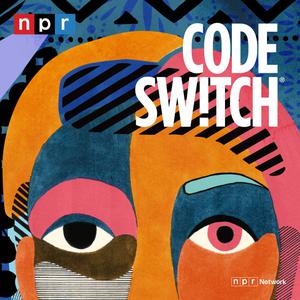 Code Switch
Code Switch
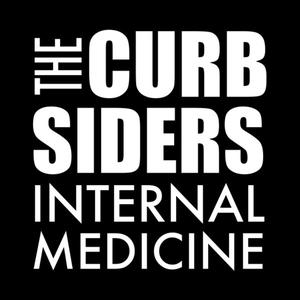 The Curbsiders Internal Medicine Podcast
The Curbsiders Internal Medicine Podcast
 The Daily
The Daily
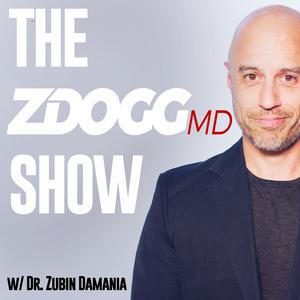 The ZDoggMD Show
The ZDoggMD Show
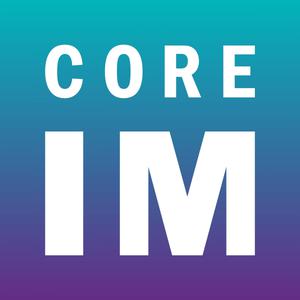 Core IM | Internal Medicine Podcast
Core IM | Internal Medicine Podcast
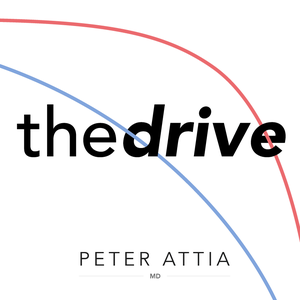 The Peter Attia Drive
The Peter Attia Drive